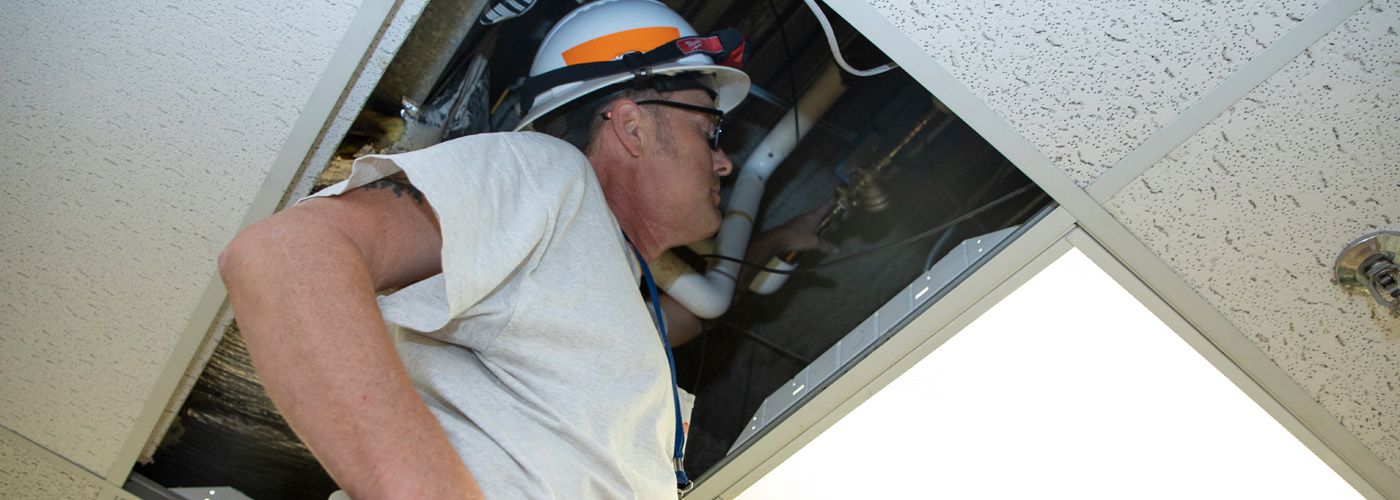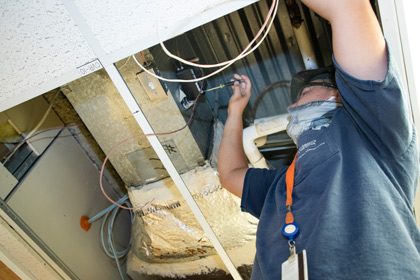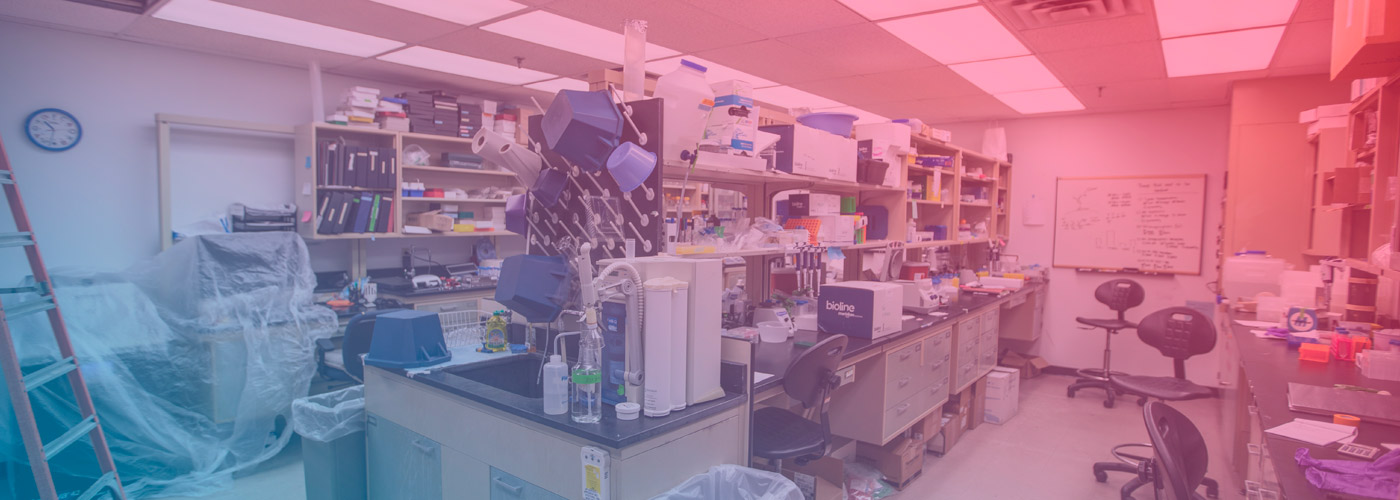Research lab buildings represent one of the University’s greatest opportunities for energy savings, according to Smart Labs Project Associate Christine Alencar who spearheads the Office for Sustainability’s Smart Labs program.
“Labs only take up 9% of the square footage at UVA but use 25% of the energy, so labs have a unique opportunity to contribute to becoming carbon neutral here at UVA,” according to Sustainability & Energy Engineer Keith Poeppel, who also works on the Smart Labs program, which was first launched in 2019.

The program bridges safety and energy efficiency in UVA's critical research spaces by individually and comprehensively assessing each lab, consulting its researchers, UVA Health and Safety experts and energy engineers to identify infrastructure improvements. Once fully implemented, the Smart Labs program is anticipated to save an estimated $5 million per year. This savings will expand on the already established and successful Green Labs program, which targets individuals’ actions within labs that can reduce energy use.
The Smart Labs Program was launched in late 2019 in the Physical and Life Sciences Building by applying adjusted ventilation rates, nighttime setbacks, occupancy sensors, and other various repairs to the ventilation system. These actions reduced energy use by $175,000 over the past year.
In early 2021, the program was launched in the 200,000-square-foot Medical Research 4 (MR4) building, which includes 13 departments and more than 70 principal investigators. The comprehensive assessment will include equipment inventories and recommendations for streamlined experimental workflows while addressing building efficiency, controls upgrades and safety. Facilities Management teams will collaborate to implement the recommendations, including Automation Services upgrading HVAC controls and Health System Physical Plant Renovations electricians installing LED lighting.


Automation Services HVAC/Controls Technician Dionte Sims reviews the programming of the newly improved HVAC system. HVAC Apprentice Travis Castellanos upgrading the Variable Air Volume (VAV) box within a lab as part of a project to boost energy efficiency. (Photos by Jane Centofante / Facilities Management)
The assessments will also provide resources for the Green Labs program, which continues to focus on chemical fume hoods and freezers as scientists’ best opportunities to reduce laboratory emissions. In a comparative study funded by the Committee on Sustainability, UVA researchers are currently testing the hypothesis that a slight increase in temperature within UVA’s ultra-low freezers could yield as much as 40% reduced energy use per unit while still protecting the most sensitive materials.
